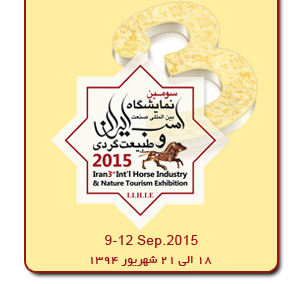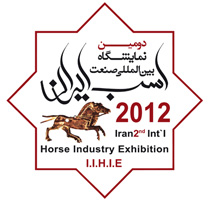

 News and Events
News and Events EcoTourism:![]()
Ecotourism is a form
of tourism involving visiting fragile, pristine, and
relatively undisturbed natural areas, intended as a low-impact and often small
scale alternative to standard commercial (mass) tourism. Its purpose may be to
educate the traveler, to provide funds for ecological
conservation, to directly benefit the economic development
and political empowerment of local communities, or to foster respect for
different cultures and for human rights. Since
the 1980s ecotourism has been considered a critical endeavor by
environmentalists, so that future generations may experience destinations
relatively untouched by human intervention.[1] Several university programs use this
description as the working definition of ecotourism.[2]
Generally, ecotourism deals
with living parts of the natural environments.[3] Ecotourism focuses on socially
responsible travel, personal growth, and environmental sustainability.
Ecotourism typically involves travel to destinations where flora,
fauna, and cultural heritage are the primary attractions.
Ecotourism is intended to offer tourists insight into the impact of human
beings on the environment, and to foster a greater appreciation of our natural
habitats.
Responsible ecotourism
programs include those that minimize the negative aspects of conventional
tourism on the environment and enhance the cultural integrity of
local people. Therefore, in addition to evaluating environmental and cultural
factors, an integral part of ecotourism is the promotion of recycling, energy efficiency,
water conservation,
and creation of economic opportunities for local communities.[4] For these reasons, ecotourism often
appeals to advocates of environmental and social responsibility.
The term 'ecotourism', like
'sustainable tourism', is considered by many to be an oxymoron[citation needed].
Tourism in general depends upon and increases air transportation, contributing
significantly to greenhouse gas
emissions from combustion placed high into the stratosphere where they immediately contribute to
the heat trapping phenomenon behind global warming and climate change. Additionally, "the overall
effect of sustainable tourism is negative, where, like ecotourism,
philanthropic aspirations mask hard-nosed immediate self-interest."[5]
Terminology and history
Ecotourism is a late
20th-century neologism compounded from eco- and tourism. According to the Oxford English
Dictionary, ecotour was first recorded in 1973 and ecotourism,
"probably after ecotour", in 1982.[11]
ecotour, n.
... A tour of or visit to an area of ecological interest, usually with an
educational element; (in later use also) a similar tour or visit designed
to have as little detrimental effect on the ecology as possible or
undertaken with the specific aim of helping conservation efforts.
ecotourism, n.
... Tourism to areas of ecological interest (typically exotic and often
threatened natural environments), esp. to support conservation efforts and
observe wildlife; spec. access to an endangered environment controlled so
as to have the least possible adverse effect.
One source claims the terms
were used earlier. Claus-Dieter (Nick) Hetzer, an academic and adventurer from
Forum International in Berkeley,
CA, supposedly coined ecotourism
in 1965 and ran the first ecotours in the Yucatán during the early
1970s.[12]
Egotourism is a recent
neologism, based upon the pun between eco- and ego-, which pejoratively refers to travelers more
motivated by an egotistical desire to
feel they engage in ethical tourism
than by a genuine desire to support a local ecology or sustainable development.[13] Graham M. S. Dann, a University of
the West Indies sociology professor, published a groundbreaking 1977
study revealing that tourism motivation is primarily based upon the
socio-psychological concepts of anomie and ego-enhancement.[14] Brian Wheeller, a professor of tourism
at the University of Tasmania,
has popularized the academic concept of egotourism. His brief 1992 "Eco or
Ego tourism" article was the first published usage of the coinage.[15] Wheeller's 1993 "Sustaining the
Ego" article explained the concept.
Sustainable tourism does
provide the answer. Unfortunately it is to the wrong question. Rather than
effectively addressing the complexities of tourism impact, what it is actually
achieving is the considerably easier task of answering the question - 'How best
can we cope with the criticism of tourism impact?' - as opposed to the impact
itself. In essence then, the solution has been conjuring up an intellectually
appealing concept with little practical application. One that satisfies the
immediate short-term wishes of some of the main protagonists in tourism's
impact debate, avoids sacrifices and enables behaviour in much the same way as
before - but with the veneer of respectability and from a higher moral
platform. For eco-tourism, read ego-tourism. We are more concerned with
maintaining our status, massaging our own egos and appeasing our guilt than
with addressing the actual issues involved.[16]
Subsequent publications have
elaborated upon egotourism.[17][18]
Ecotourism, egotourism, responsible tourism,
jungle tourism, and sustainable tourism
have become prevalent alternative tourism
concepts since the mid-1980s, and ecotourism has experienced arguably the
fastest growth of all sub-sectors in the tourism industry. The popularity
represents a change in tourist perceptions, increased environmental awareness,
and a desire to explore natural environments.[4]
Iran ecotourism
Many of the world's famous
sociologists & geographers leading east, know the Iranian civilization
affected from the multiple nature of the Iran plateau.
BTW, many ceremonies are held
around the country every year and many interested tourists wish to have a
journey to Iran
and finding the mystery of these ceremonies.
Recognition of these traditions provides the
opportunity to multiple tours and tourist attractions and increase the number
of applicants.



- مکان نمایشگاه : مرکز نمایشگاهی برج میلاد تهران
- Exhibition Place : Tehran Milad Tower Exhibition Center






